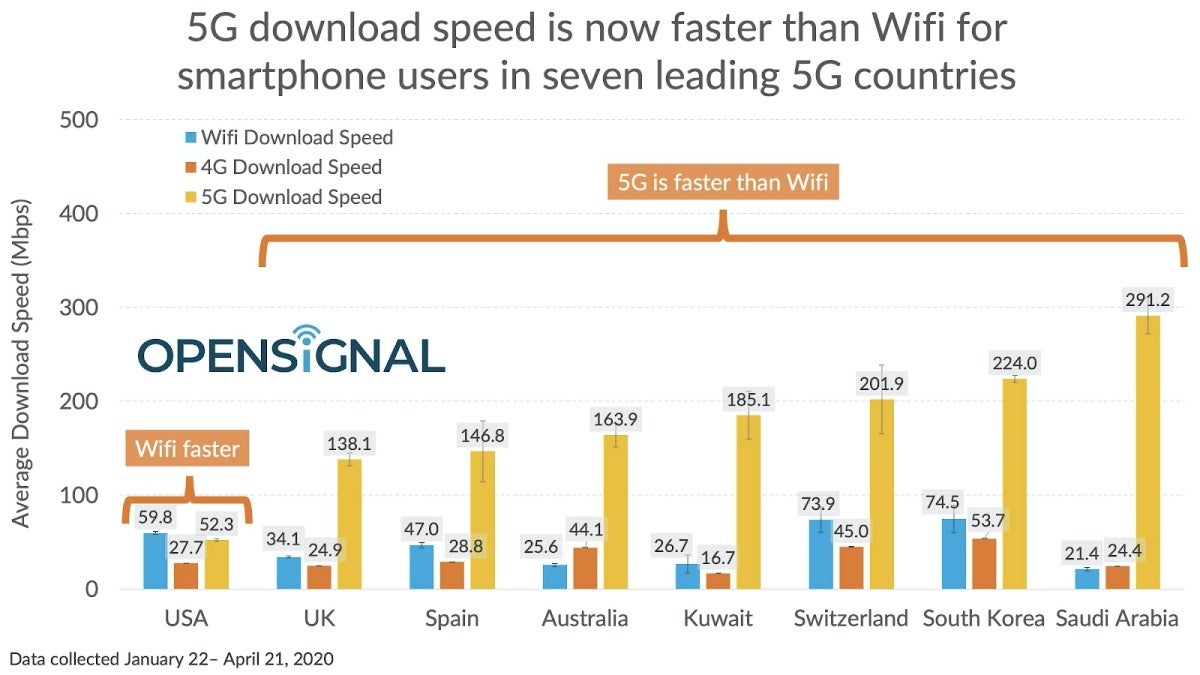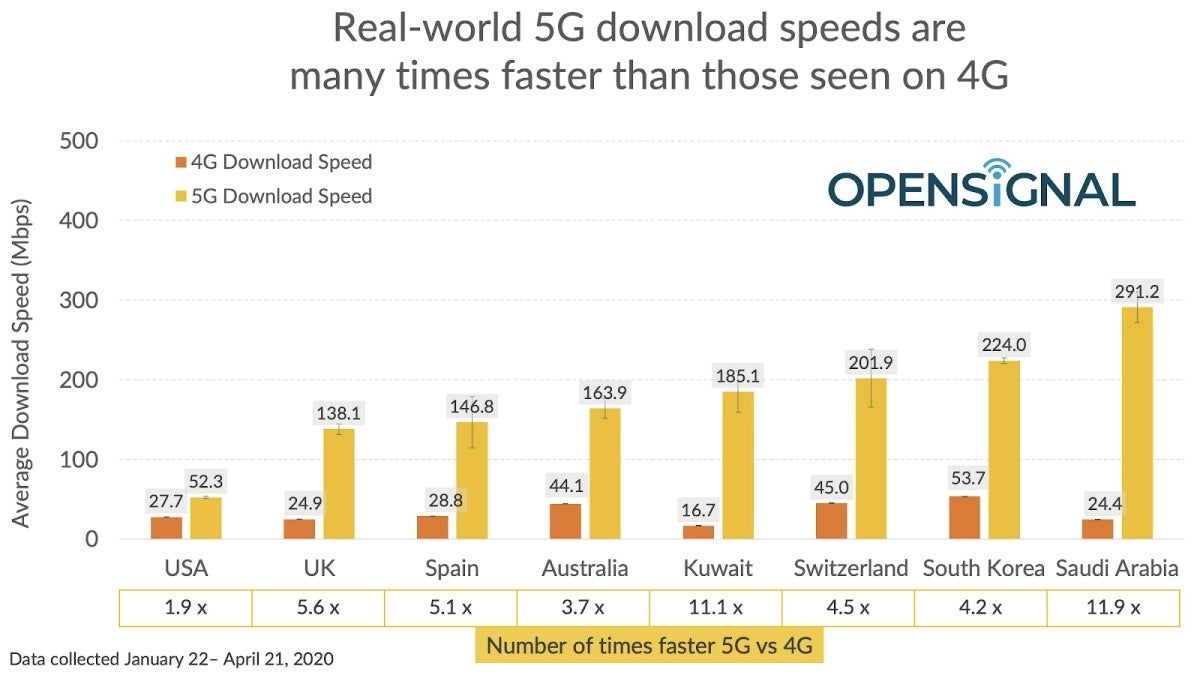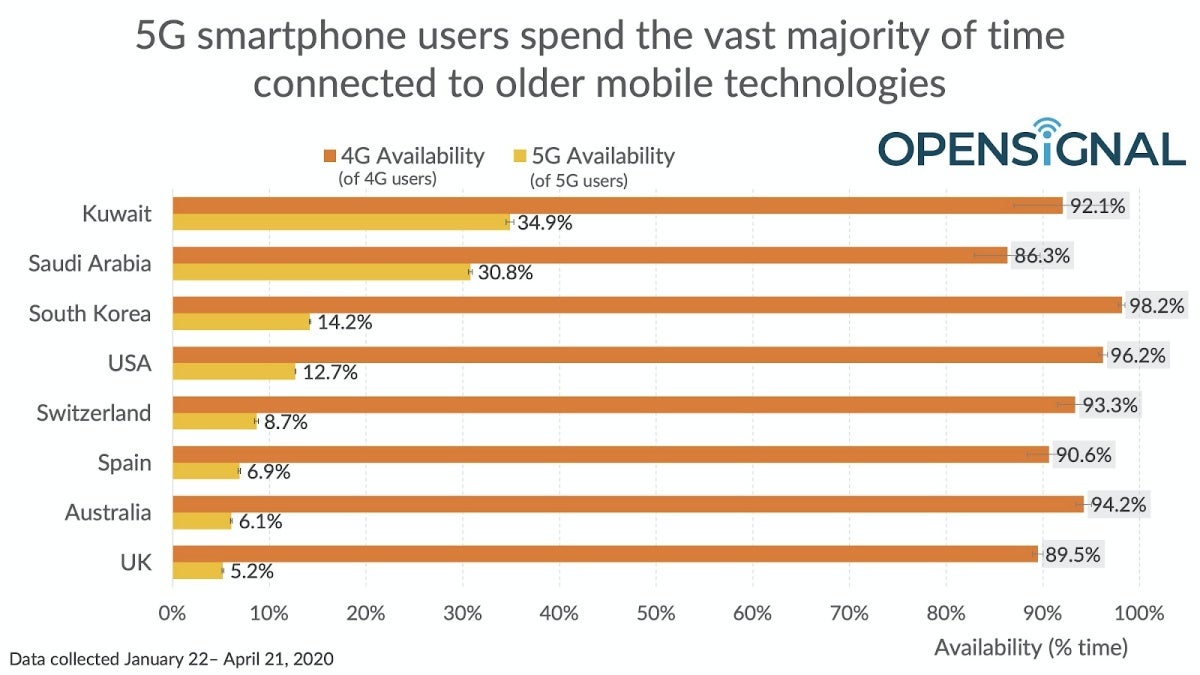Because of T-Mobile and AT&T, US 5G still lags behind Wi-Fi in terms of speed

Don't wait on the Pixel 4a, the Pixel 4 is $350 off right now!
The only "leading" country where Wi-Fi is faster than 5G
According to data collected by mobile analytics company Opensignal between January 22 and April 21, wireless carriers have already managed to make their cellular services more appealing for speed addicts than Wi-Fi connections in seven out of eight surveyed countries.
Before 5G entered the picture, that was only true in Australia and Saudi Arabia, where even 4G LTE connectivity is enough to produce higher average download figures than Wi-Fi. When taking 5G into consideration, Wi-Fi speeds are also exceeded in the UK, Spain, Kuwait, Switzerland, and South Korea, but not the US.

Granted, 5G does significantly close the gap stateside, leaving 4G LTE speeds far behind, but at the same time, the US trails every single aforementioned country, thus earning the shameful title of the world's slowest "leading" 5G market. Of course, there's a very simple explanation for that, as well as a real hope things will pick up before long.
As highlighted by OpenSignal, "most countries" have focused their initial 5G rollout efforts on "fast high-capacity mid-band spectrum" of around 3.5GHz, while T-Mobile and AT&T continue to rely primarily on low-band 5G technology. That's great for coverage but not so much for speeds, and although Verizon's 5G network is built entirely on blazing fast mmWave technology, this is available exclusively in small parts of big cities, which made its contribution to the country average minimal.

The main thing that gives up hope the US 5G download speed score will improve in the near future is T-Mobile's integration of all that sweet mid-band 2.5GHz spectrum previously owned by Sprint, which is already bearing fruit in Philadelphia and New York. Still, the US will probably need a long time to catch up to the likes of Saudi Arabia, South Korea, and even the UK.
The 5G availability chart looks entirely different
The first phase of T-Mobile's "full layer cake" strategy does naturally come with an upside, helping the US climb the ranks up to the number four spot among these eight "leading 5G countries" in terms of 5G availability.
Rather than simply measuring theoretical coverage, OpenSignal dived a little deeper, finding that US 5G users could actually connect to a 5G network 12.7 percent of the time spent searching for a cellular signal between January 22 and April 21.

That may not sound like an impressive number, especially if you compare it to the 96.2 percent nationwide availability score of 4G LTE, but because carriers in other countries chose to neglect the low-band spectrum employed by both T-Mobile and AT&T, some of their figures were even lower, bottoming out at 5.2 percent in the UK.
Going forward, we obviously expect 5G availability to continue to rise across the US, as AT&T, for instance, does not cover the entire country with its low-band network yet. Then again, Verizon doesn't seem to have any intention to revise its mmWave-centric rollout strategy anytime soon, which is likely to slow things down considerably.
Follow us on Google News
















Things that are NOT allowed:
To help keep our community safe and free from spam, we apply temporary limits to newly created accounts: